
kinesiology & applied physiology research
Faculty from the Kinesiology & Applied Physiology Department in the College of Health Sciences engage in novel, interdisciplinary research that contributes to the scientific literature, while also providing a rigorous training ground for our students. A sampling of some of our on-going work is provided below.
Our Focus Areas
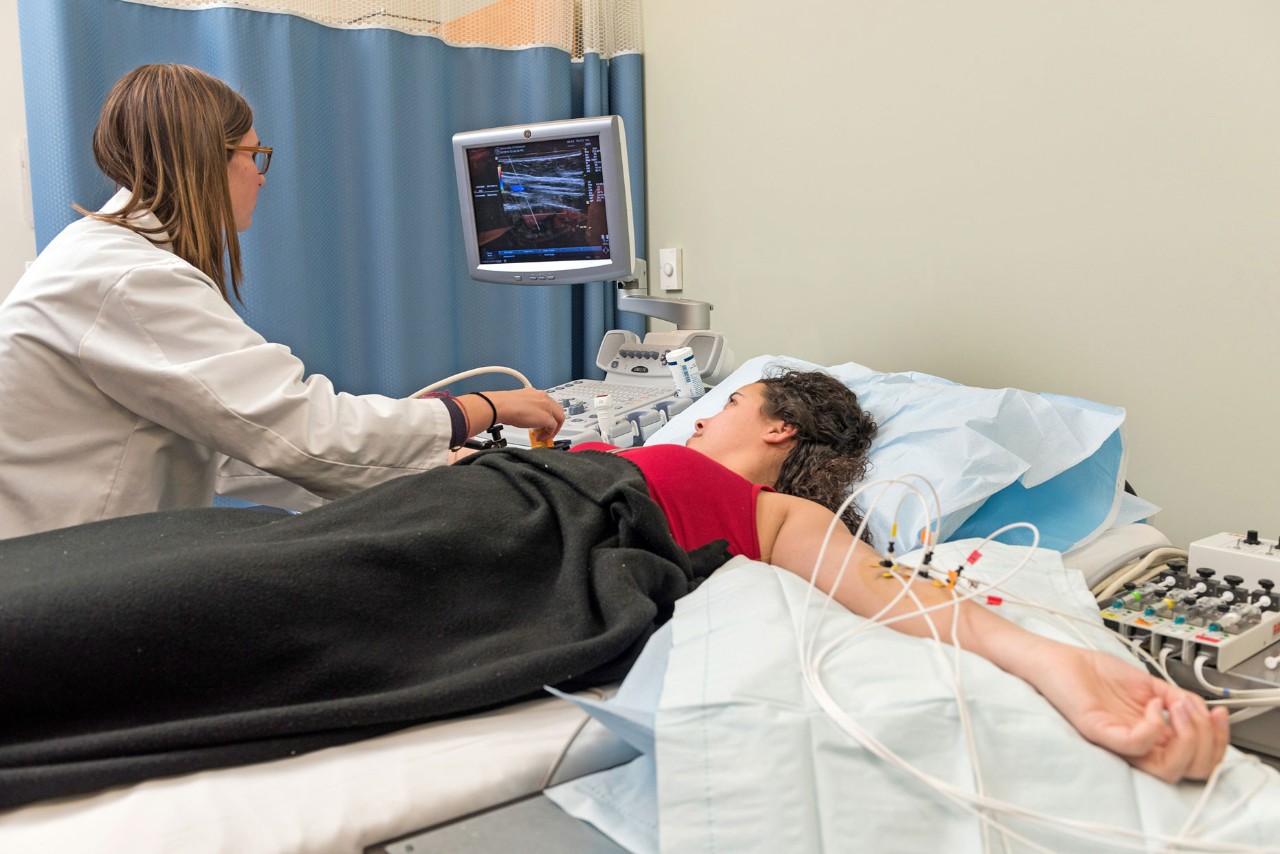
Vascular Physiology Research Laboratory
Our research focuses on studying vascular function/dysfunction in healthy and diseased states, with particular emphasis on chronic kidney disease, and vascular responses to exercise and diet. Our research examines macro- and microvascular function as well as arterial stiffness in humans and animal models.
Website: Vascular Physiology Research Laboratory
Director: David G. Edwards
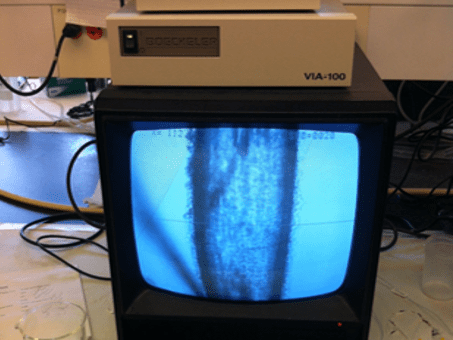
Vascular Ion Channel Research Laboratory
Our research focuses on how vascular ion channels regulate vascular tone in health and disease. Our goal is to identify the role of ion channels in mechanisms of vascular dysfunction in the presence of independent cardiovascular risk factors (e.g. obesity) in order to provide novel targets for preventing the advancement of severe disease states.
Website: Vascular Ion Channel Research Laboratory
Director: Ibra S. Fancher
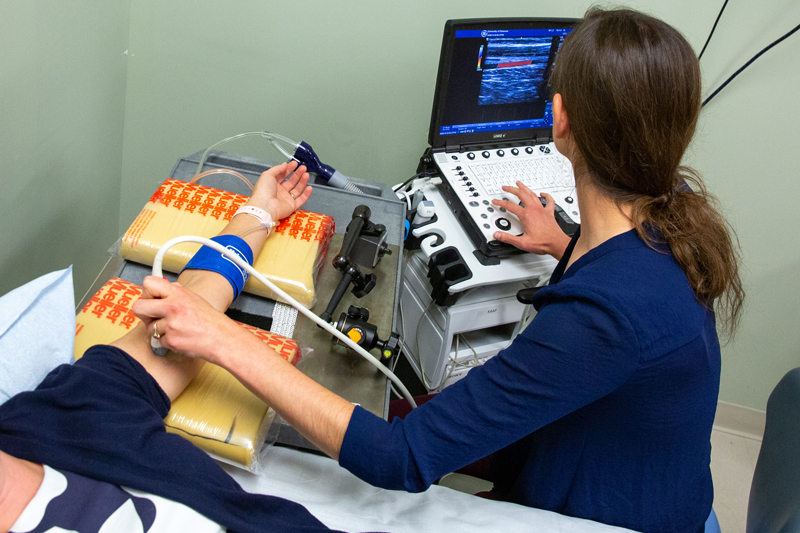
Cardiovascular Physiology Research Laboratory
Our research focuses on examining blood pressure regulation and autonomic nervous system function in humans. We focus on understanding how fluid and electrolyte imbalance in the body affect blood pressure control at rest and during exercise, and brain blood vessel function. We study healthy adults and those who are hypertensive or chronically consume high dietary sodium.
Website: Cardiovascular Physiology Research Laboratory
Director: William B. Farquhar
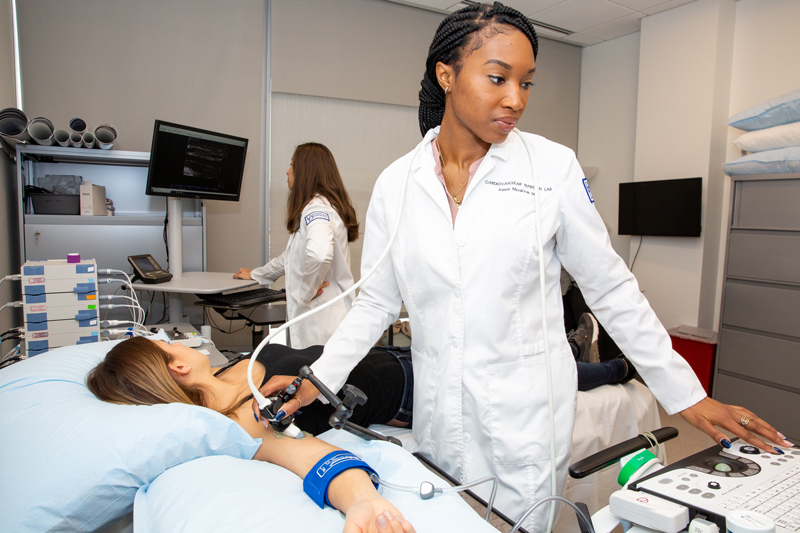
Cardiovascular Nutrition Research Laboratory
Our research focus is on the role of dietary nutrients on the cardiovascular system in healthy and diseased states. Our research uses a variety of techniques to study heart and blood vessel function in humans.
Website: Cardiovascular Nutrition Research Laboratory
Director: Shannon L. Lennon
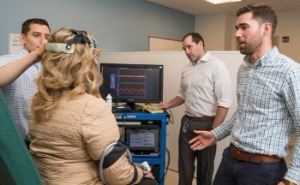
Neurovascular Aging Laboratory
Our research focuses on understanding the mechanisms by which impaired vascular function contributes to cognitive impairment and risk of Alzheimer’s disease in older adults. Our goal is to develop novel pharmacological, lifestyle and dietary interventions to delay or reverse age-associated cognitive decline by increasing blood flow to the brain.
Website: Neurovascular Aging Laboratory
Director: Christopher R. Martens
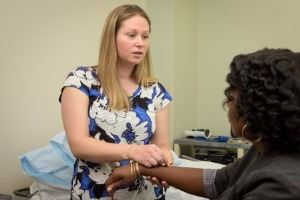
Women's Cardiovascular Research Laboratory
Our research focuses on cardiovascular health in women throughout their lifespan. We study mechanism contributing to vascular dysfunction in women as they age, and the role estrogen may play in maintaining vascular health, as well as blood pressure regulation in women to understand why the prevalence of hypertension is greater in women after menopause.
Website: Women's Cardiovascular Research Laboratory
Director: Megan Wenner
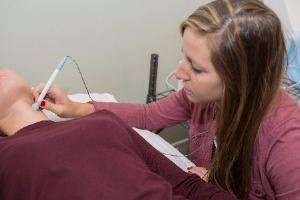
Vascular Function in Chronic Disease Research Laboratory
Our research focuses on understanding vascular function and blood flow regulation throughout the lifespan and in the face of chronic disease, with particular emphasis on cardiovascular disease. Our goal is to improve the overall health and quality of life in people through exercise, lifestyle, and pharmacological interventions.
Website: Vascular Function in Chronic Disease Research Laboratory
Director: Melissa Witman
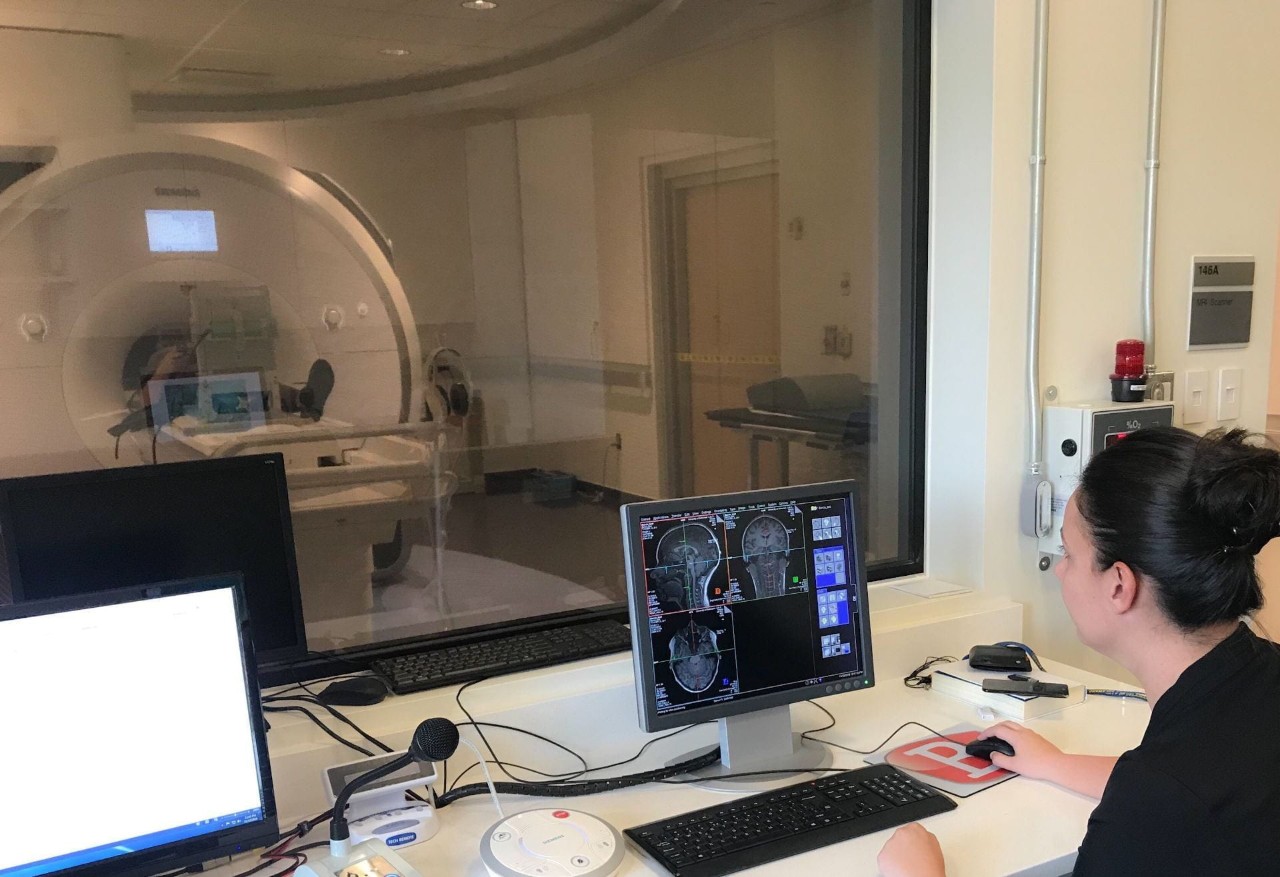
Motor Neuroscience and Neuroimaging Research Laboratory
Our research focuses on advancing knowledge of human neural control of movement in health and disease to develop rehabilitation interventions for improving motor function. Our research is geared toward a better understanding of the neural mechanisms contributing to motor symptoms in Parkinson’s disease and utilizing integrated functional and structural brain imaging techniques, detailed assessments of motor and non-motor function, and genetic data.
Website: Motor Neuroscience and Neuroimaging Research Laboratory
Director: Roxana G. Burciu
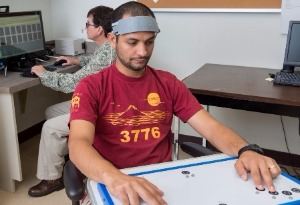
Developmental Motor Control Research Laboratory
Our research focuses on ways to improve the ability of children to move successfully in their everyday lives. We study the development of motor control and coordination as well as perceptual, cognitive, and motor relationships in typically and atypically developing children.
Website: Developmental Motor Control Research Laboratory
Director: Nancy Getchell
![KAAP-Virtual_Reality_Cave-010518 Virtual Reality Cave in the Health Sciences Complex on UD's Science, Technology, and Advanced Research (STAR) Campus. "Neuroscientist John Jeka, who chairs the Department of Kinesiology and Applied Physiology, and his research team investigates how the nervous system uses sensory information (vision, inner ear) to estimate body dynamics and guide motor processes for upright balance control. The applied goal is to better understand patient populations with neurological disease and injury that lead to balance problems." [CHS website] - (Evan Krape / University of Delaware)](/academics/colleges/chs/departments/kaap/research/_jcr_content/par_udel/panelforpages/par_1/tabs/par_1603821402282/columngenerator_1260789182/par_0/image.coreimg.jpeg/1605638032688/virtual-reality-overlay.jpeg)
Control of Balance and Locomotion Research Laboratory
Our research focuses on understanding the neural and biomechanical basis of human upright balance. We investigate how the nervous system uses sensory information to estimate body dynamics and guide motor processes for upright balance control. The goal is to better understand patient populations with neurological disease and injury that lead to balance problems.
Website: Control of Balance and Locomotion Research Laboratory
Director: John J. Jeka & Hendrik Reimann
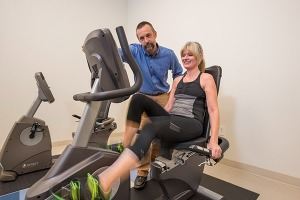
Exercise Neuroscience Research Laboratory
The goal of the ExNeuro Lab is to provide new knowledge about the use of exercise to improve mobility and fitness in people with Parkinson’s disease and older adults. We focus on the effects of exercise on the nervous system and the prevention of age- or disease-related slowing.
Website: Exercise Neuroscience Research Laboratory
Director: Christopher A. Knight
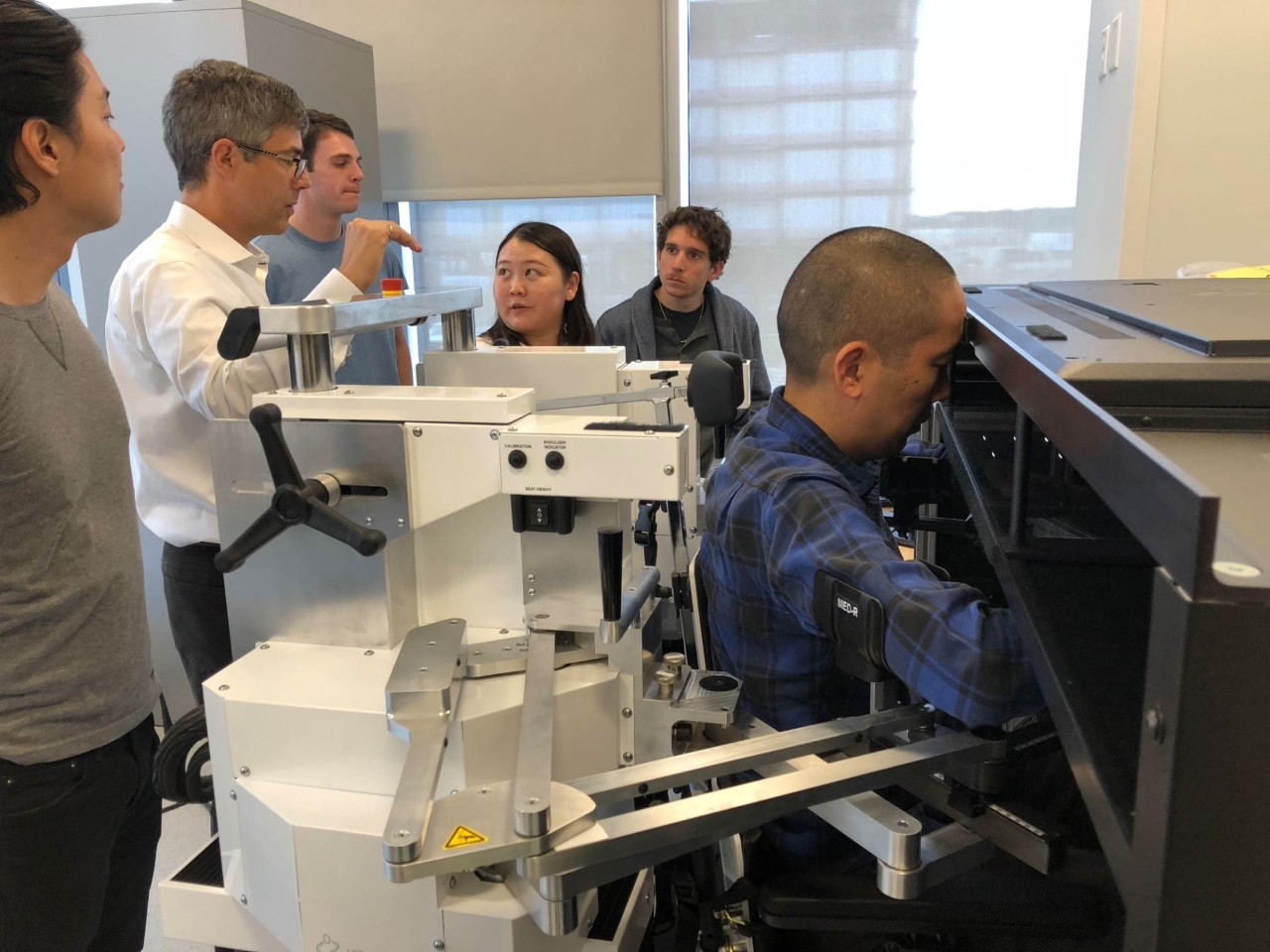
Sensorimotor Control & Robotic Rehabilitation Research Laboratory
Our research uses a KINARM robotic exoskeleton to study sensorimotor function and rehabilitation of the upper limb in individuals with stroke and other neurologic diseases/injuries. We focus on the neural and behavioral mechanisms that contribute to learning and recovery of sensory and motor function after neural injury through the use of robotics, neuroimaging, neurostimulation, and computational modeling.
Website: Sensorimotor Control & Robotic Rehabilitation Research Laboratory
Director: Jennifer Semrau
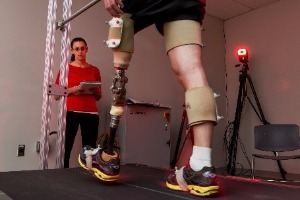
Orthotics & Prosthetics for Enhanced Mobility Laboratory
Our lab focuses on orthotic and prosthetic biomechanics, with goals of understanding the interaction between the human musculoskeletal system and orthotic/prosthetic devices, and optimizing the design and prescription of orthotic and prosthetic devices to enable all orthotic and prosthetic users to reach their optimal functional level.
Website: Orthotics & Prosthetics for Enhanced Mobility Laboratory
Director: Elisa S. Arch
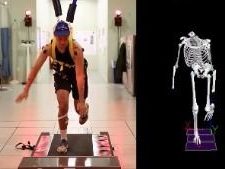
Falls and Mobility Research Laboratory
Our research focuses on how to reduce the incidence of falls, lessen the severity of fall injury, and enable physical activity in patient populations. We employ clinical and biomechanical analyses of mobility and balance, including tests of fall recovery. Our research is applicable to many groups of people, including older adults, individuals with chronic stroke, and children with cerebral palsy.
Website: Falls and Mobility Research Laboratory
Director: Jeremy Crenshaw
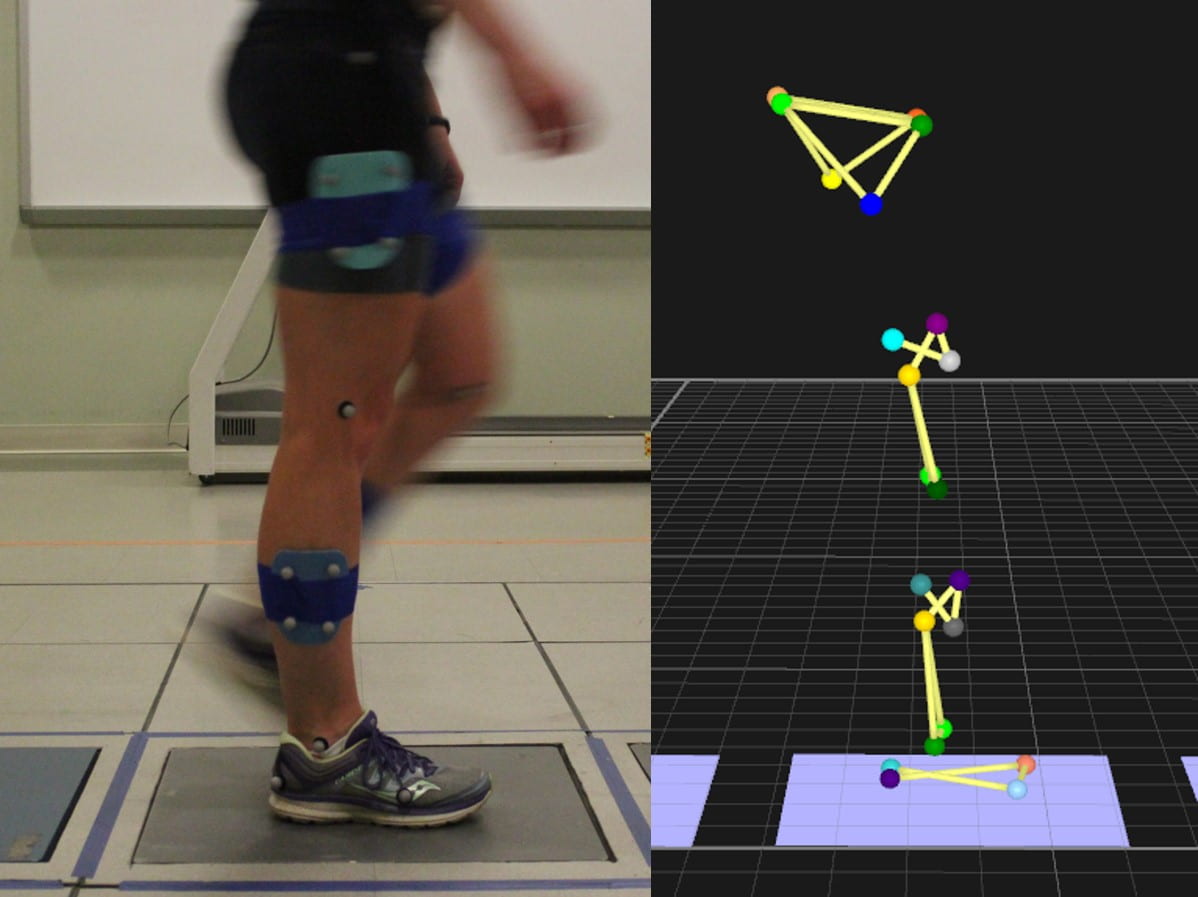
Gait Biomechanics Research Laboratory
Our research focuses on mechanisms responsible for changes in gait due to age, pathology, injury, or exercise. We examine the role of muscle function and behavior in gait biomechanics by testing the response of gait to transient, fatigue-induced changes in muscle strength and by studying how long-term physical activity or gait behavior relates to gait biomechanics and joint loading in order to develop targeted interventions to help adults maintain mobility across the lifespan.
Website: Gait Biomechanics Research Laboratory
Director: Jocelyn F. Hafer
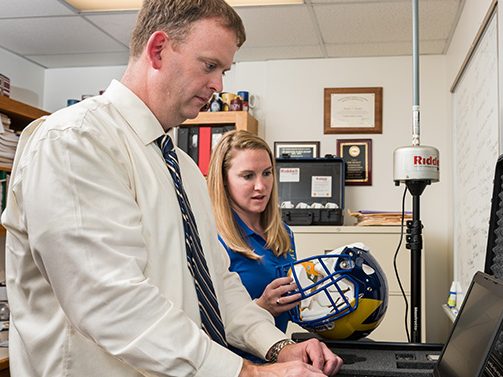
Concussion Research Laboratory
The goals of the Concussion Research Group are to explore balance following sports related concussion particularly during recovery and beyond return to participation & to investigate the effect of repetitive head impacts on neurological health and physiology in collision sport athletes.
Website: Concussion Research Laboratory
Director: Thomas A. Buckley
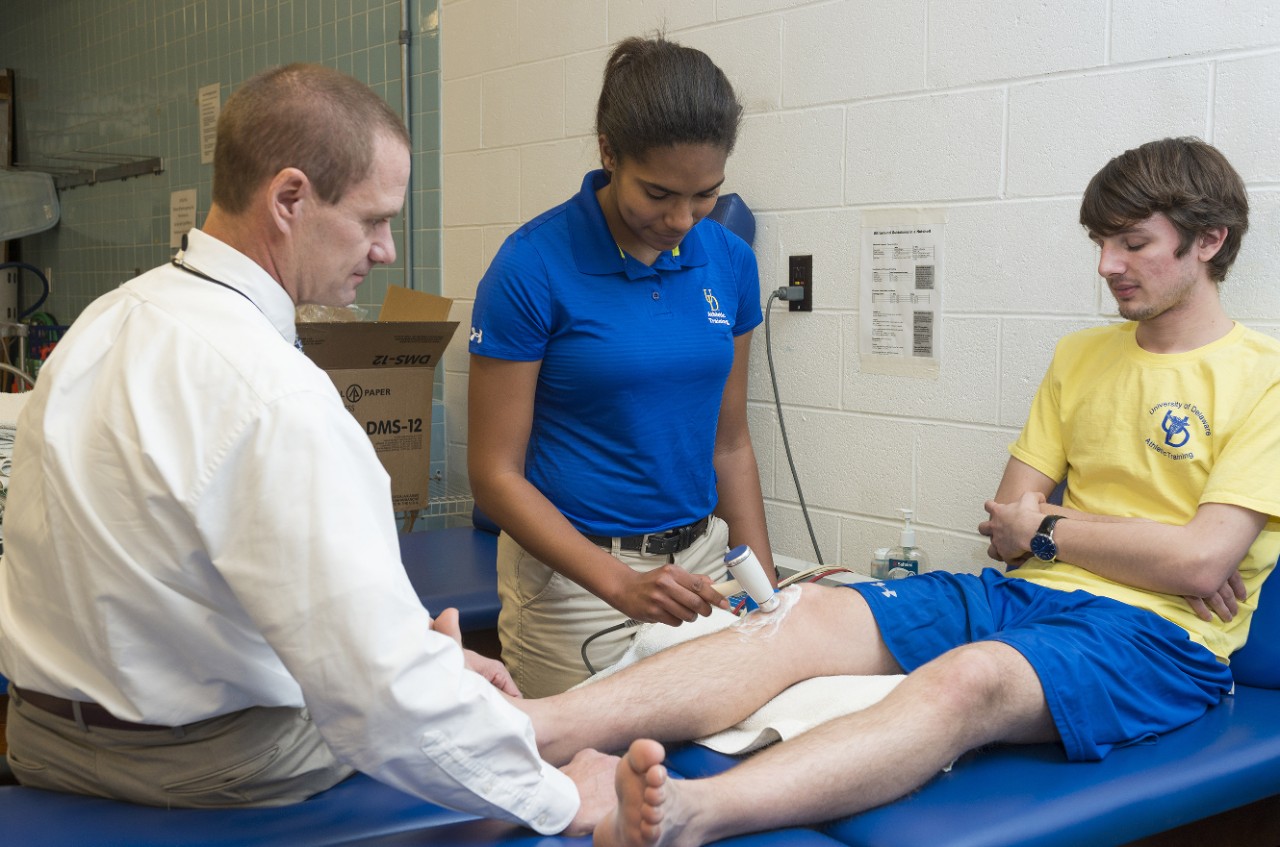
Athletic Training Research Laboratory
The primary focus of this lab within the domain of Sports Medicine is to study sensorimotor and neurocognitive aspects of musculoskeletal related injury. In addition, there is a strong emphasis on sport related concussions.
Website: Athletic Training Research Laboratory
Director: Thomas W. Kaminski
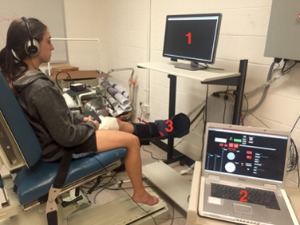
Neuromechanics Research Laboratory
Our lab studies the neurologic and biomechanical aspects of injury proneness. The momentary loss of situational awareness causing neuromusculoskeletal injuries can be studied by measuring how the brain controls protective muscle tone/stiffness. We apply our results to injury prevention and rehabilitation programs to help mitigate future accidents.
Website: Neuromechanics Research Laboratory
Director: Charles Buz Swanik

Vascular Physiology Research Laboratory
Our research focuses on studying vascular function/dysfunction in healthy and diseased states, with particular emphasis on chronic kidney disease, and vascular responses to exercise and diet. Our research examines macro- and microvascular function as well as arterial stiffness in humans and animal models.
Website: Vascular Physiology Research Laboratory
Director: David G. Edwards

Vascular Ion Channel Research Laboratory
Our research focuses on how vascular ion channels regulate vascular tone in health and disease. Our goal is to identify the role of ion channels in mechanisms of vascular dysfunction in the presence of independent cardiovascular risk factors (e.g. obesity) in order to provide novel targets for preventing the advancement of severe disease states.
Website: Vascular Ion Channel Research Laboratory
Director: Ibra S. Fancher

Cardiovascular Physiology Research Laboratory
Our research focuses on examining blood pressure regulation and autonomic nervous system function in humans. We focus on understanding how fluid and electrolyte imbalance in the body affect blood pressure control at rest and during exercise, and brain blood vessel function. We study healthy adults and those who are hypertensive or chronically consume high dietary sodium.
Website: Cardiovascular Physiology Research Laboratory
Director: William B. Farquhar

Cardiovascular Nutrition Research Laboratory
Our research focus is on the role of dietary nutrients on the cardiovascular system in healthy and diseased states. Our research uses a variety of techniques to study heart and blood vessel function in humans.
Website: Cardiovascular Nutrition Research Laboratory
Director: Shannon L. Lennon

Neurovascular Aging Laboratory
Our research focuses on understanding the mechanisms by which impaired vascular function contributes to cognitive impairment and risk of Alzheimer’s disease in older adults. Our goal is to develop novel pharmacological, lifestyle and dietary interventions to delay or reverse age-associated cognitive decline by increasing blood flow to the brain.
Website: Neurovascular Aging Laboratory
Director: Christopher R. Martens

Women's Cardiovascular Research Laboratory
Our research focuses on cardiovascular health in women throughout their lifespan. We study mechanism contributing to vascular dysfunction in women as they age, and the role estrogen may play in maintaining vascular health, as well as blood pressure regulation in women to understand why the prevalence of hypertension is greater in women after menopause.
Website: Women's Cardiovascular Research Laboratory
Director: Megan Wenner

Vascular Function in Chronic Disease Research Laboratory
Our research focuses on understanding vascular function and blood flow regulation throughout the lifespan and in the face of chronic disease, with particular emphasis on cardiovascular disease. Our goal is to improve the overall health and quality of life in people through exercise, lifestyle, and pharmacological interventions.
Website: Vascular Function in Chronic Disease Research Laboratory
Director: Melissa Witman

Motor Neuroscience and Neuroimaging Research Laboratory
Our research focuses on advancing knowledge of human neural control of movement in health and disease to develop rehabilitation interventions for improving motor function. Our research is geared toward a better understanding of the neural mechanisms contributing to motor symptoms in Parkinson’s disease and utilizing integrated functional and structural brain imaging techniques, detailed assessments of motor and non-motor function, and genetic data.
Website: Motor Neuroscience and Neuroimaging Research Laboratory
Director: Roxana G. Burciu

Developmental Motor Control Research Laboratory
Our research focuses on ways to improve the ability of children to move successfully in their everyday lives. We study the development of motor control and coordination as well as perceptual, cognitive, and motor relationships in typically and atypically developing children.
Website: Developmental Motor Control Research Laboratory
Director: Nancy Getchell
![KAAP-Virtual_Reality_Cave-010518 Virtual Reality Cave in the Health Sciences Complex on UD's Science, Technology, and Advanced Research (STAR) Campus. "Neuroscientist John Jeka, who chairs the Department of Kinesiology and Applied Physiology, and his research team investigates how the nervous system uses sensory information (vision, inner ear) to estimate body dynamics and guide motor processes for upright balance control. The applied goal is to better understand patient populations with neurological disease and injury that lead to balance problems." [CHS website] - (Evan Krape / University of Delaware)](/academics/colleges/chs/departments/kaap/research/_jcr_content/par_udel/panelforpages/par_1/tabs/par_1603821402282/columngenerator_1260789182/par_0/image.coreimg.jpeg/1605638032688/virtual-reality-overlay.jpeg)
Control of Balance and Locomotion Research Laboratory
Our research focuses on understanding the neural and biomechanical basis of human upright balance. We investigate how the nervous system uses sensory information to estimate body dynamics and guide motor processes for upright balance control. The goal is to better understand patient populations with neurological disease and injury that lead to balance problems.
Website: Control of Balance and Locomotion Research Laboratory
Director: John J. Jeka & Hendrik Reimann

Exercise Neuroscience Research Laboratory
The goal of the ExNeuro Lab is to provide new knowledge about the use of exercise to improve mobility and fitness in people with Parkinson’s disease and older adults. We focus on the effects of exercise on the nervous system and the prevention of age- or disease-related slowing.
Website: Exercise Neuroscience Research Laboratory
Director: Christopher A. Knight

Sensorimotor Control & Robotic Rehabilitation Research Laboratory
Our research uses a KINARM robotic exoskeleton to study sensorimotor function and rehabilitation of the upper limb in individuals with stroke and other neurologic diseases/injuries. We focus on the neural and behavioral mechanisms that contribute to learning and recovery of sensory and motor function after neural injury through the use of robotics, neuroimaging, neurostimulation, and computational modeling.
Website: Sensorimotor Control & Robotic Rehabilitation Research Laboratory
Director: Jennifer Semrau

Orthotics & Prosthetics for Enhanced Mobility Laboratory
Our lab focuses on orthotic and prosthetic biomechanics, with goals of understanding the interaction between the human musculoskeletal system and orthotic/prosthetic devices, and optimizing the design and prescription of orthotic and prosthetic devices to enable all orthotic and prosthetic users to reach their optimal functional level.
Website: Orthotics & Prosthetics for Enhanced Mobility Laboratory
Director: Elisa S. Arch

Falls and Mobility Research Laboratory
Our research focuses on how to reduce the incidence of falls, lessen the severity of fall injury, and enable physical activity in patient populations. We employ clinical and biomechanical analyses of mobility and balance, including tests of fall recovery. Our research is applicable to many groups of people, including older adults, individuals with chronic stroke, and children with cerebral palsy.
Website: Falls and Mobility Research Laboratory
Director: Jeremy Crenshaw

Gait Biomechanics Research Laboratory
Our research focuses on mechanisms responsible for changes in gait due to age, pathology, injury, or exercise. We examine the role of muscle function and behavior in gait biomechanics by testing the response of gait to transient, fatigue-induced changes in muscle strength and by studying how long-term physical activity or gait behavior relates to gait biomechanics and joint loading in order to develop targeted interventions to help adults maintain mobility across the lifespan.
Website: Gait Biomechanics Research Laboratory
Director: Jocelyn F. Hafer

Concussion Research Laboratory
The goals of the Concussion Research Group are to explore balance following sports related concussion particularly during recovery and beyond return to participation & to investigate the effect of repetitive head impacts on neurological health and physiology in collision sport athletes.
Website: Concussion Research Laboratory
Director: Thomas A. Buckley

Athletic Training Research Laboratory
The primary focus of this lab within the domain of Sports Medicine is to study sensorimotor and neurocognitive aspects of musculoskeletal related injury. In addition, there is a strong emphasis on sport related concussions.
Website: Athletic Training Research Laboratory
Director: Thomas W. Kaminski

Neuromechanics Research Laboratory
Our lab studies the neurologic and biomechanical aspects of injury proneness. The momentary loss of situational awareness causing neuromusculoskeletal injuries can be studied by measuring how the brain controls protective muscle tone/stiffness. We apply our results to injury prevention and rehabilitation programs to help mitigate future accidents.
Website: Neuromechanics Research Laboratory
Director: Charles Buz Swanik
ADDITIONAL LINKS
Tower at STAR: 100 Discovery Blvd, Newark, DE 19713 | Health Sciences Complex: 540 S. College Ave, Newark, DE 19713 chs-info@udel.edu Phone: 302-831-1060
